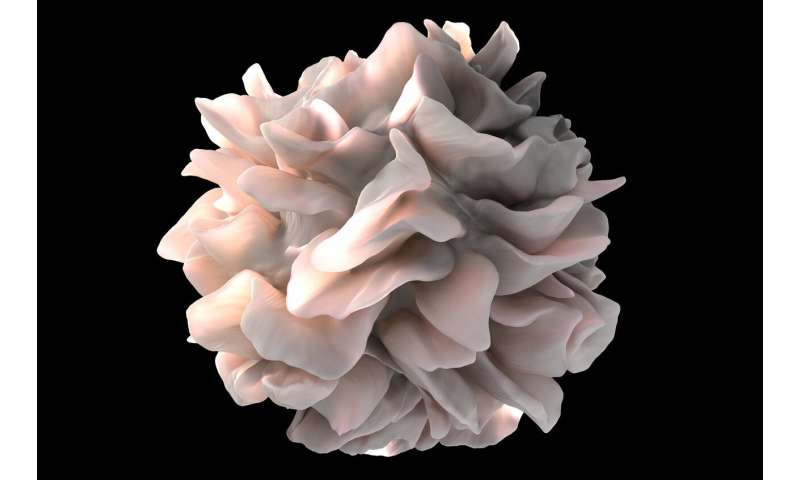
Mount Sinai researchers have discovered a pathway that regulates special immune system cells in lung cancer tumors, suppressing them and allowing tumors to grow. The scientists also figured out how to interrupt this pathway and ramp up the immune system to prevent tumor formation or growth, offering a potential boost to immunotherapy, according to a study published in Nature in March.
Researchers analyzed human and mouse lung cancer lesions, specifically studying the highly specialized immune cells called dendritic cells, which are considered the generals of the immune system. Dendritic cells give other immune system cells, called T-cells, identifying information from tumors so the T-cells can recognize and fight the cancer. Certain genetic material in the tumors, however, tamps down the dendritic cells’ function via this newly discovered immune regulatory pathway.
Scientists performed high-tech, single-cell sequencing and high-definition imaging on mouse and human tumors to study the dendritic cells’ activity in lung cancer and adjacent noncancerous lung tissues. They identified a molecular pathway that dampens dendritic cells’ ability to program T-cells to kill. This study also showed that reversing this pathway significantly improves tumor responses in animals.
Based on the findings, scientists are designing a clinical trial that they expect will enhance patients’ response to an immunotherapy called checkpoint blockade, by adding a second therapy that blocks the immune regulatory pathway that decreases dendritic cells’ function in tumors. Right now only about 20 percent of patients respond to checkpoint blockade therapies. The trial will be done in collaboration with Regeneron Inc.
Source: Read Full Article
